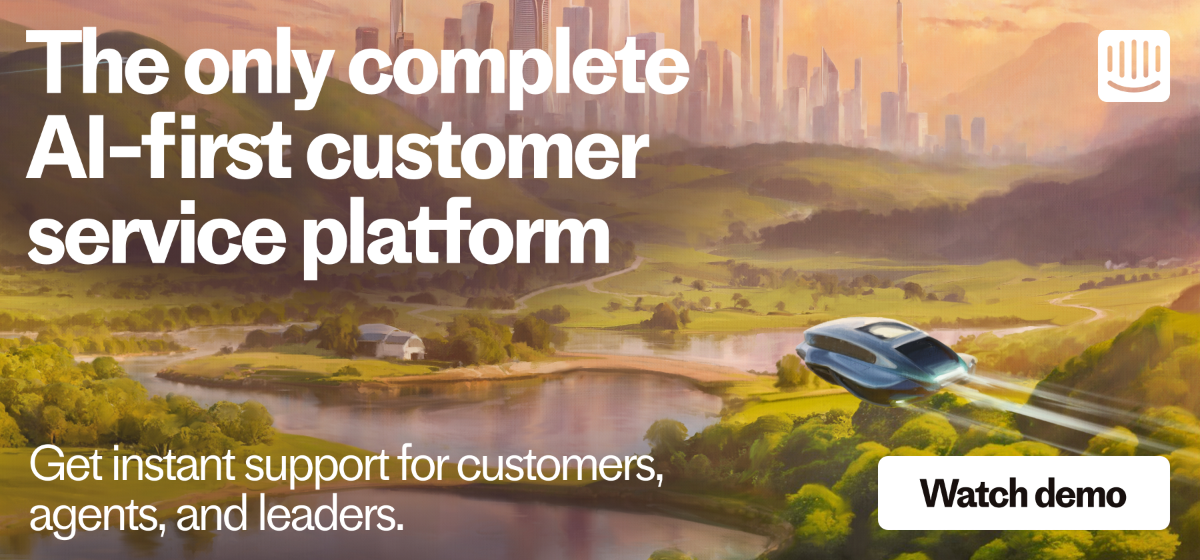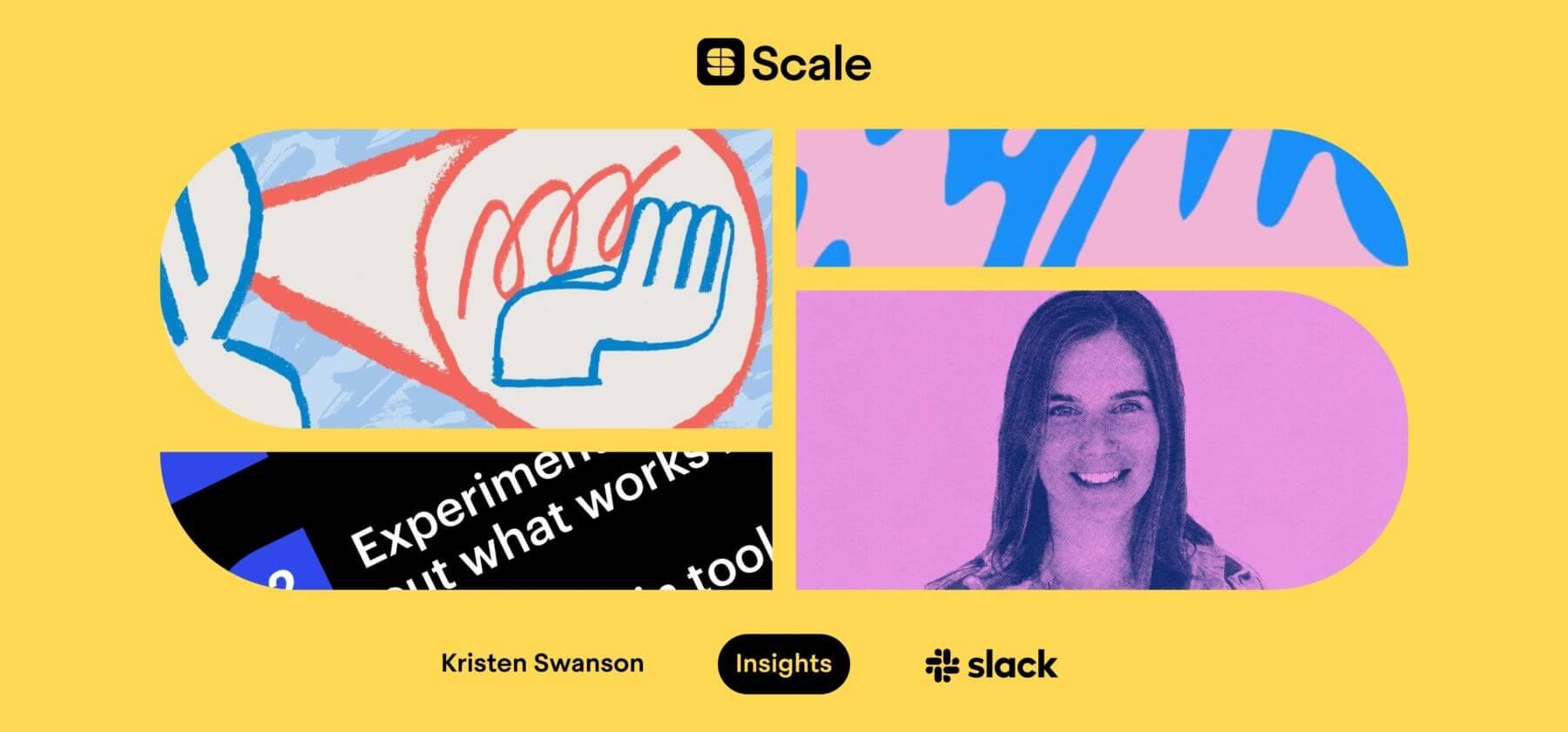
Slack’s Kristen Swanson on building the deeply human support experience your customers deserve – and expect
Kristen Swanson is the Senior Director of Customer Insight at Slack, the channel-based messaging platform designed to “make work simpler, more pleasant, and more productive.”
This is the second in a recurring series of articles looking at how modern support leaders are navigating the support landscape as it continues to evolve. With customer expectations on the rise, we look to find out how support leaders are creating best-in-class experiences to meet those expectations, and what support teams need to be set up for success as the future unfolds.
As many of Slack’s customers face transitions to new and remote working environments, Kristen’s team is focused on supporting them to be comfortable and confident working apart – by keeping them connected. Despite not having been purpose-built for remote working, the beauty of the Slack platform is that it lends itself perfectly to the recent pivot from office to home working that many of us have experienced.
“Our team is mindful of the tremendous changes people are going through at the current time and we’re focused on providing those people with the extra support they need in order to stay aligned and communicate effectively”
As the world looks ahead to the future of work, Kristen speaks to Slack’s focus on supporting its customers and helping them to navigate this transition, saying, “Our team is mindful of the tremendous changes people are going through at the current time and we’re focused on providing those people with the extra support they need in order to stay aligned and communicate effectively.”
All hands on support
As global lockdown restrictions came into effect earlier this year, Slack added a banner to their homepage with a simple message: “Want to talk to someone and get some help getting your team set up? Click here.” For the following month, hundreds of Slack teammates from every department in the company were jumping on calls with customers to help them get set up with everything they needed to work remotely.
“I’ll get a message every once in a while that says, ‘Hey, the customer that I helped reached out to me and they’re doing great'”
Kristen says that the initiative has had long-term benefits. “Even today, many months later, I’ll get a message every once in a while that says, ‘Hey, the customer that I helped reached out to me and they’re doing great.’”
Scaling support through conversations
With more than 2,000 employees and a customer base that includes 65 of the Fortune 100 company list, Slack is a solution that has revolutionized how people communicate at work. Its 250-strong team of support specialists, product experts, and customer experience champions is dedicated to providing a deeply human support experience for its customers – as Kristen puts it, their goal is to “help people do their best work.”
“Offering support that spans 24 hours a day, 7 days a week, to more than 12 million daily active users across the globe, Slack’s customer support needs to strike the perfect balance between personal and scalable”
Offering support that spans 24 hours a day, 7 days a week, and to more than 12 million daily active users across the globe, it’s crucial that Slack’s customer support strikes the perfect balance between personal and scalable. Using Zendesk, Slack, and a suite of internal tools, the team offers support across multiple channels with a view to being able to meet their customers wherever they are, from submitting a ticket through the website to sending the team a message on Twitter.
Kristen explains, “We don’t have a tiered support model, so anyone who writes in to us, whether they’re on a free team or a paid team, is going to get the best support for their inquiry as fast as we can possibly serve.” Above all else, Slack’s support team wants to facilitate ongoing dialogue and build lasting relationships with its customers – which, as Kristen highlights, is “where the magic happens.”
Representing the voice of the customer
The customer experience team at Slack sits within the product organization. The reason for this organizational decision is because, over her years of experience in the industry, Kristen has encountered a recurring problem – support teams are often too far away from the teams building the product, which can result in a poor experience for the customer.
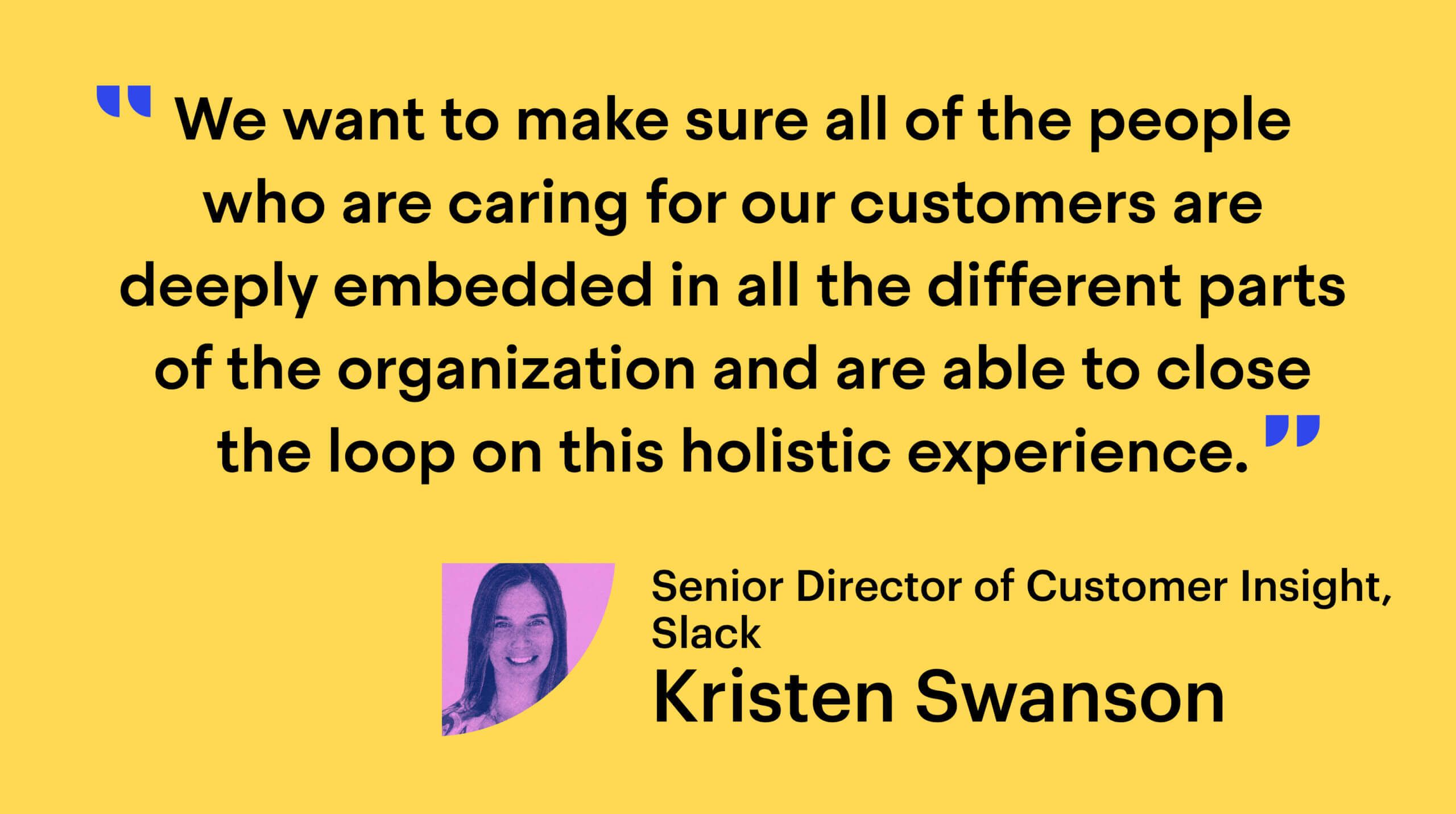
To ensure this never happens at Slack, Kristen’s team is dedicated to championing the voice of their customers throughout the organization, ensuring that everyone in the company understands the pain points and goals of their customers. As Kristen puts it:
“We want to make sure the people who are caring for our customers are deeply connected to the people building the product and are able to close the loop on this holistic experience we want to provide our customers.”
This close alignment between the support and product teams and sharp focus on customer feedback enables the Slack team to identify potential roadblocks and friction points within their product and implement fixes. By reducing this friction, Slack’s customers are being proactively supported before they ever need to contact the support team, lowering the number of support queries being submitted, and freeing up their agents to provide support for bigger and more sensitive issues. Kristen explains, “We care really deeply about not just solving a customer’s immediate problem, but also capturing that signal, analyzing it in a meaningful way, and sharing it back into the organization.”
Putting philosophy into practice
Slack’s philosophy of support is that it should be deeply human, which is something that also runs deep here at Intercom. In practice, maintaining that level of personal connection with customers at scale requires a strong foundation of technology. From sophisticated automated routing to knowledge centers filled with product education content, Slack’s support operations team is committed to ensuring the tools and systems underpinning their support are set up to help their customers succeed.
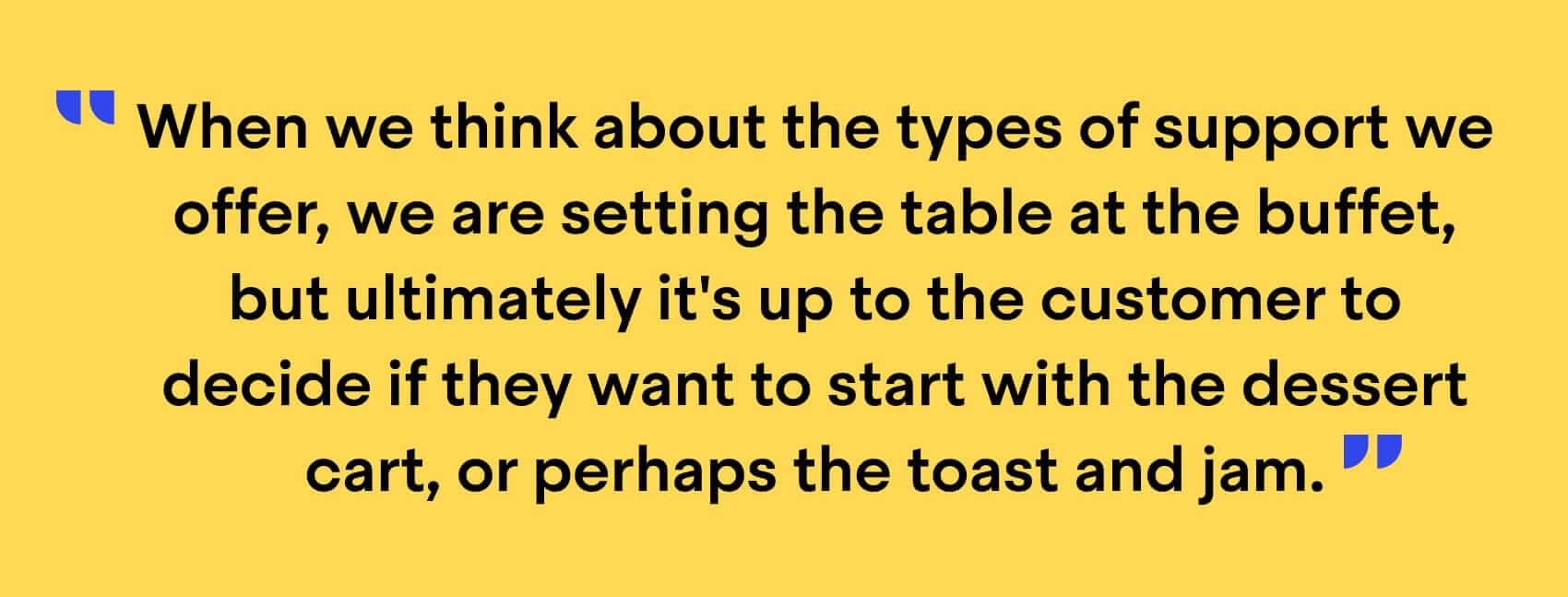
At Slack, customers seeking support always have the option of speaking directly with a human, but can also avail of self-service support if they prefer. Customers who opt to self-serve are brought to Slack’s resource hub, where they can access product training resources and find answers to commonly asked questions in the bank of user education content.
Understanding the customer
Speaking to the role this self-serve support journey plays within Slack’s overall support experience, Kristen explains, “One of the things that is really important to us when we think about the types of support we offer is that we are setting the table at the buffet, but ultimately it’s up to the customer to decide if they want to start with the dessert cart, or perhaps the toast and jam.”
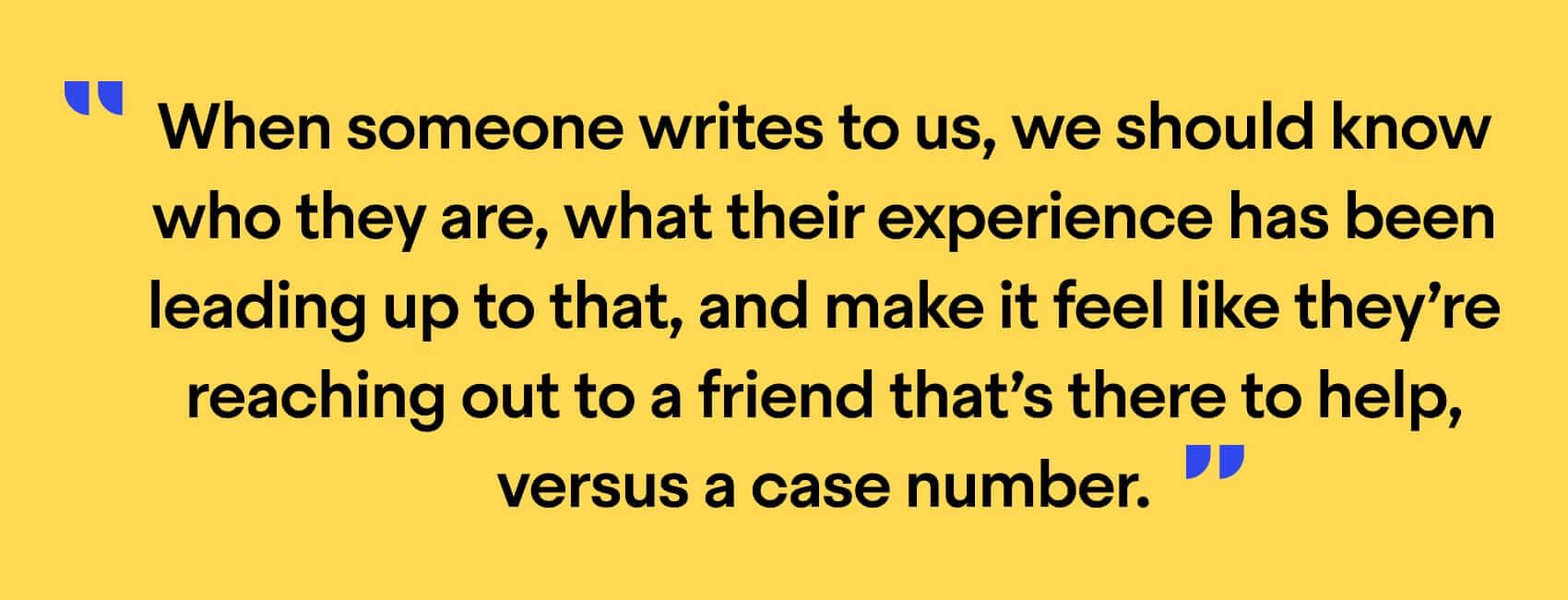
Building further on this idea of technology as an empowering force for human support, Slack’s support team emphasizes the importance of being able to have contextual information about customers before and while speaking with them. “When someone writes to us, we should know who they are, what their experience has been leading up to that, and make it feel like they’re reaching out to a friend that’s there to help, versus a case number,” Kristen says.

Having this level of understanding about their customers enables the team to solve queries in a contextual and meaningful way, providing an all-round better support experience.
Lessons learned from building a strong support experience
In Kristen’s experience building support experiences, there are three key things support leaders can do to elevate the experience they’re creating for their customers.
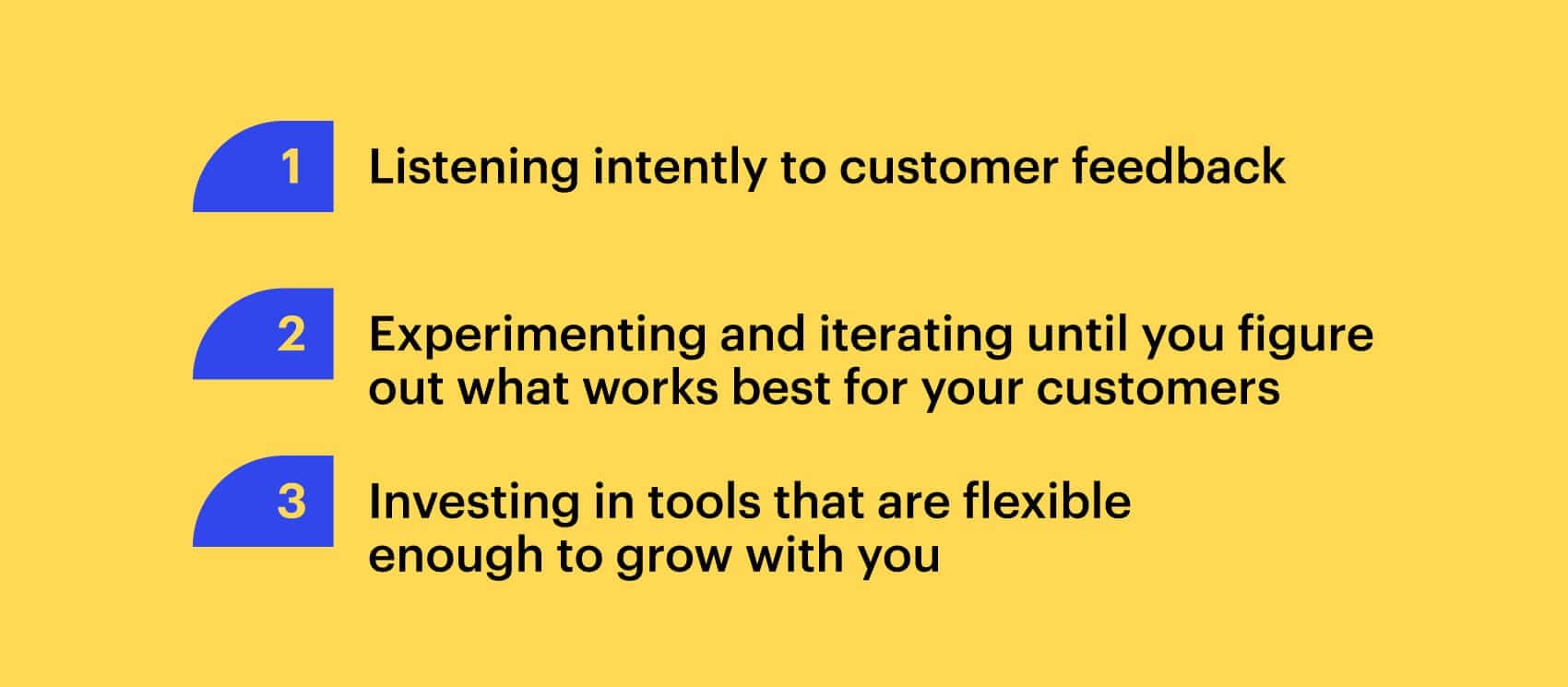
Reflecting on the days of old when exceptional customer support was a nice-to-have, Kristen says that this is no longer the case. Customer expectations are at an all-time high, and as she puts it, “If you can’t live up to that ideal, it’s going to create headwinds for your company.”

